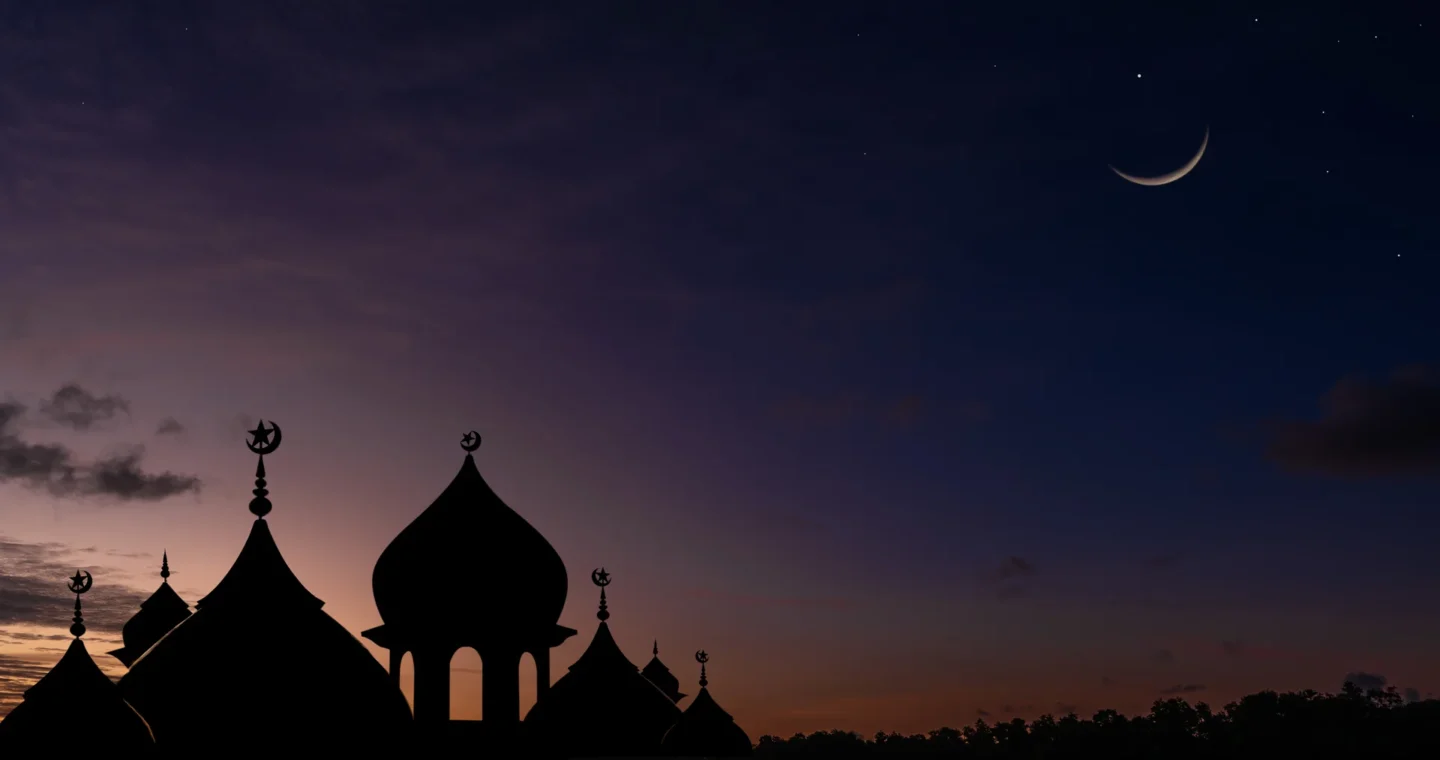What is Muharram?
إِنَّ عِدَّةَ ٱلشُّهُورِ عِندَ ٱللَّهِ ٱثْنَا عَشَرَ شَهْرًۭا فِى كِتَـٰبِ ٱللَّهِ يَوْمَ خَلَقَ ٱلسَّمَـٰوَٰتِ وَٱلْأَرْضَ مِنْهَآ أَرْبَعَةٌ حُرُمٌۭ ۚ ذَٰلِكَ ٱلدِّينُ ٱلْقَيِّمُ ۚ فَلَا تَظْلِمُوا۟ فِيهِنَّ أَنفُسَكُمْ ۚ وَقَـٰتِلُوا۟ ٱلْمُشْرِكِينَ كَآفَّةًۭ كَمَا يُقَـٰتِلُونَكُمْ كَآفَّةًۭ ۚ وَٱعْلَمُوٓا۟ أَنَّ ٱللَّهَ مَعَ ٱلْمُتَّقِينَ ٣٦
At-Tawbah, Ayah 36
Indeed, the number of months with Allāh is twelve [lunar] months in the register of Allāh [from] the day He created the heavens and the earth; of these, four are sacred. That is the correct religion, so do not wrong yourselves during them. And fight against the disbelievers collectively as they fight against you collectively. And know that Allāh is with the righteous [who fear Him].
Muharram, known as the “Month of Allah,” holds a special place in the Islamic calendar as one of the four sacred months. This month is known not only for its historical significance but also for the unique spiritual opportunities it offers. As we dive into the significance of Muharram, we explore its historical significance, its virtues, the Day of Ashura, and what you should do in this sacred month.
Historical Significance
The Arabs used to consider these months sacred during the time of Jahiliyyah. The four Sacred Months were made four, three in succession and one alone, so that the Hajj and `Umrah are performed with ease. Dhul-Qa’dah, the month before the month of Hajj, was made sacred because they refrained from fighting during that month. Dhul-Hijjah, the next month, was made sacred because it is the month of Hajj, during which they performed Hajj rituals. Muharram, which comes next, was made sacred so that they are able to go back to their areas in safety after performing Hajj. Rajab, in the middle of the lunar year, was made sacred so that those coming from the farthest areas of Arabia are able to perform `Umrah and visit the House and then go back to their areas safely.
The mention of these four months as sacred does not mean that other months are not sacred, as Ramadan is universally recognized as the most sacred month of the year. However, these four months were specifically designated as sacred because even the pre-Islamic pagans of Makkah respected their sanctity, following the tradition of their ancestor Ibrahim (peace be upon him). Despite their frequent tribal conflicts, they refrained from war during these months.
Virtues of Muharram
Qatadah said about Allah’s statement,
فَلاَ تَظْلِمُواْ فِيهِنَّ أَنفُسَكُمْ
(so wrong not yourselves therein), “Injustice during the Sacred Months is worse and graver than injustice in other months. Verily, injustice is always wrong, but Allah makes things graver than others as He will.”
Out of the twelve months, Allah chose four out of these months and made them sacred, emphasizing their sanctity, making sinning in them greater, in addition to, multiplying rewards of righteous deeds during them. So we have to take advantage and try to do as many good deeds as we can while refraining from any sin.
One of the best things to do in this month is to fast as known from the following hadith:
حَدَّثَنَا قُتَيْبَةُ، حَدَّثَنَا أَبُو عَوَانَةَ، عَنْ أَبِي بِشْرٍ، عَنْ حُمَيْدِ بْنِ عَبْدِ الرَّحْمَنِ الْحِمْيَرِيِّ، عَنْ أَبِي هُرَيْرَةَ، قَالَ قَالَ رَسُولُ اللَّهِ صلى الله عليه وسلم “ أَفْضَلُ الصِّيَامِ بَعْدَ صِيَامِ شَهْرِ رَمَضَانَ شَهْرُ اللَّهِ الْمُحَرَّمُ ” . قَالَ أَبُو عِيسَى حَدِيثُ أَبِي هُرَيْرَةَ حَدِيثٌ حَسَنٌ .
Jami` at-Tirmidhi 740
Abu Hurairah narrated that: the Messenger of Allah said: “The most virtuous fasting after the month of Ramadan is Allah’s month Al-Muharram.”
The Day of Ashura
As seen in the previous hadith, fasting in this month is second only to the month of fasting, Ramadan. The best day in this month to fast is on the 10th day of Muharram, which is the Day of Ashura.
وعن أبي قتادة رضي الله عنه أن رسول الله صلى الله عليه وسلم سئل عن صيام يوم عاشوراء فقال: “يكفر السنة الماضية”
Riyad as-Salihin 1252
((رواه مسلم
Abu Qatadah (May Allah be pleased with him) reported: The Messenger of Allah (ﷺ) was asked about observing As-Saum (the fast) on the tenth day of Muharram, and he replied, “It is an expiation for the sins of the preceding year.” [Muslim].
Abdullah ibn Abbas (may Allah be pleased with them both) said: “When the Messenger of Allah (ﷺ) fasted on `Ashura and commanded the Muslims to fast as well, they said, ‘O Messenger of Allah, it is a day that is venerated by the Jews and Christians.’
The Messenger of Allah (peace and blessings of Allah be upon him) said, ‘If I live to see the next year, in sha Allah, we will fast on the ninth day too.’ But it so happened that the Messenger of Allah (peace and blessings of Allah be upon him) passed away before the next year came.” (Reported by Muslim).
As-Shafi’i and his companions, Ahmad, Ishaaq and others said: “It is mustahabb to fast on both the ninth and tenth days, because the Prophet (ﷺ) fasted on the tenth, and intended to fast on the ninth.”
From this, it may be said that there are varying degrees of fasting `Ashura: the least of which is to fast only on the tenth and the best of which is to fast the ninth as well. The more one fasts in Muharram, the better it is.
Muharram to do list:
Increase in your fasting this month, especially on the Day of Ashura
Make abundant dua, especially when fasting
Engage in dhikr and reading Quran
Give in charity




